About
The course teaches students comprehensive and specialised subjects in entrepreneurial leadership and management for arts innovation; it develops skills in critical thinking and strategic planning for changing and fast-paced environments, including financial and operational analysis; and it develops competences in leadership, including autonomous decision-making, and communication with employees, stakeholders, and other members of a business. These generalized MBA insights are firmly rooted in a curriculum focused on innovation, social entrepreneurship, and the creative arts.
Target Audience
Ages 19-30, 31-65
Target Group
The MBA equips arts entrepreneurs to succeed in today’s complex world through its practical problem-based frameworks, tools, experiences, and methodologies curated by a unique blend of world-class academic institutions, faculty, practitioners, mentors, and coaches. The curriculum is tailored to the needs of arts professionals in multi-dimensional roles seeking creative, entrepreneurial, and operational tools for enhanced impact and leadership.
In all cases, the target group should be prepared to pursue substantial academic studies fitting to the MQF level.
Mode of attendance
Full-Time
Structure of the programme
Please note that this structure may be subject to change based on faculty expertise and evolving academic best practices. This flexibility ensures we can provide the most up-to-date and effective learning experience for our students.
Full-Time:
Semester I:
Engaged Aesthetics for Global Development
Music and the Mind: An Integrated Approach
Frameworks for Advocacy and Action
Introduction to Social Enterprise
Teaching Artistry for Communities
Making Music Work: Culture and Practice
Topics in Creative Management I
Semester II:
Human-Centred Design
Organisational Finance Toolkit
Operational Excellence
Revenue Strategies; Paths to Financing
Measuring Results, Evaluating Impact
Sustained Success: Creativity & Renewal
Topics in Creative Management II Reflective Collaboration Labs is a yearlong course. The Field Immersion Project follows the end of semester II.
Grading System - Scale: 0-100 points - Components: 60% of the mark derives from the average of the assignments, and 40% of the mark derives from the cumulative examination - Passing requirement: minimum of 60% overall
Dates of Next Intake - Rolling admission
Pass rates - 2023 pass rates will be publicised in the next cycle, contingent upon ensuring sufficient student data for anonymization.
Identity Malta’s VISA requirement for third country nationals: https://www.identitymalta.com/unit/central-visa-unit/
How students have found success through Woolf
Course Structure
About
What makes organisations creative, resilient, and capable of renewing
themselves?
In this Module, Cohort Members learn to view organisations as nests of dynamic cooperative activities that have evolved to handle uncertainty, not as command-and-control machines. From this perspective, strategy, leadership, and organising are all entrepreneurial activities, embracing awareness, discovery, judgement, persuasion, practice, and learning. The framework that informs module 12 is a non-traditional one, based on systems thinking, complexity theory, and a dual-systems approach to understanding (embodied) human cognition. The analogies are organic and ecological and the primary polarities are between the logico-scientific and narrative approaches to understanding the process of organising in
complex adaptive systems. Science takes things apart to see how they work; narrative puts things together to see what they mean. The philosophical underpinnings are pragmatic (is it helpful?) rather than positivist (is it true?). As such, the module is often critical of conventional management thinking and constantly questions the nature of the evidence on which managers base (or at least justify) their decisions. It becomes clear that management is not just a technical practice, preoccupied with meeting business goals, but also a moral practice concerned with assessing the worthiness of those goals. The overall objective is to develop the Cohort Members’ capacity to make meaning from their experiences working in organisational contexts.
Teachers



Intended learning outcomes
- Develop a critical knowledge of management as a moral and technical practice
- Critically assess the relevance of theories of systems thinking and complexity for business applications in the domain of community music organisations
- Acquire knowledge of select topics for the advanced management of complex team dynamics within arts organisations
- Critically understand the diverse scholarly views on managing for organisational resilience
- Develop a specialised knowledge of adaptive leadership theories in the context of social enterprises
- Autonomously gather material and organise it into a coherent research brief and presentation
- Creatively apply concepts of adaptive leadership
- Employ the standard modern conventions for the presentation of scholarly work and scholarly referencing
- Apply an in-depth domain-specific knowledge and understanding to manage in the context of uncertainty and competing moral goods
- Efficiently manage interdisciplinary issues that arise from managing with both scientific and narrative perspectives in mind
- Solve problems and be prepared to take leadership decisions related to sustaining the worthiness of organisational goals
- Create synthetic contextualised discussions of key issues related adaptive leadership and resilience in organisational contexts
- Act autonomously in identifying research problems and solutions related to ecological perspectives on managing nonprofits
- Apply a professional and scholarly approach to research problems pertaining to team dynamics within complex systems
- Demonstrate self-direction in research and originality in finding meaning from management
About
Great ideas and talent aren’t enough. Musicians know from experience that you have to practice, refine, have discipline, learn from and correct mistakes; always strive to improve, be more efficient, minimise movements to avoid injury, and so forth. The same is true of building a business: having a working product or idea isn’t enough, you need to have the discipline, the motivation, and the tenacity to always improve that product, to outperform the competition, and to never sit back on your laurels. This module explores how to balance a state of constant flux, with the drive to refine and improve. It looks at how to continually deliver more efficient and better services to clients and customers. A number of questions will be explored, including how to eliminate “waste” in a process, and how to get to the root cause of an issue.
Teachers

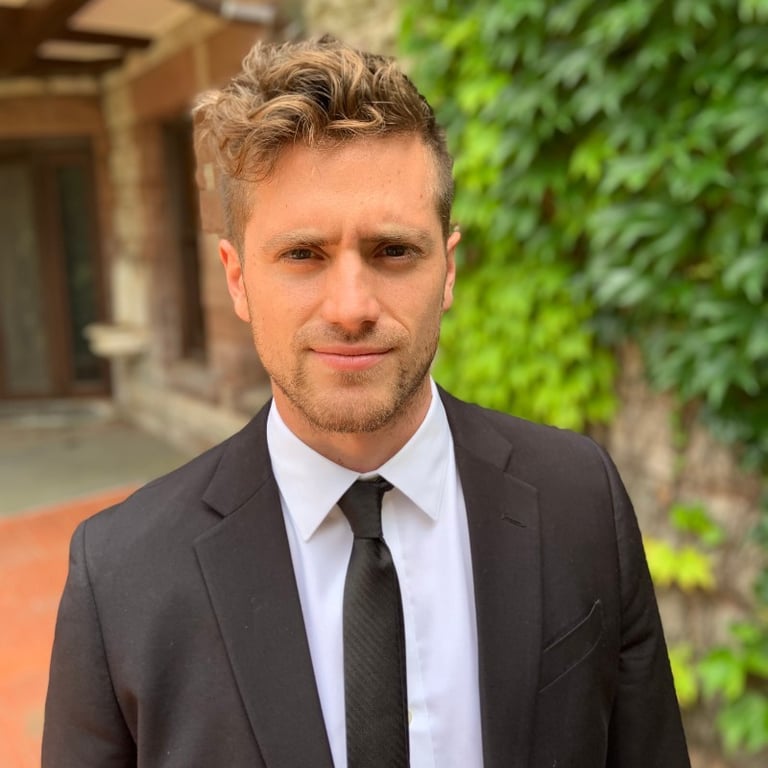

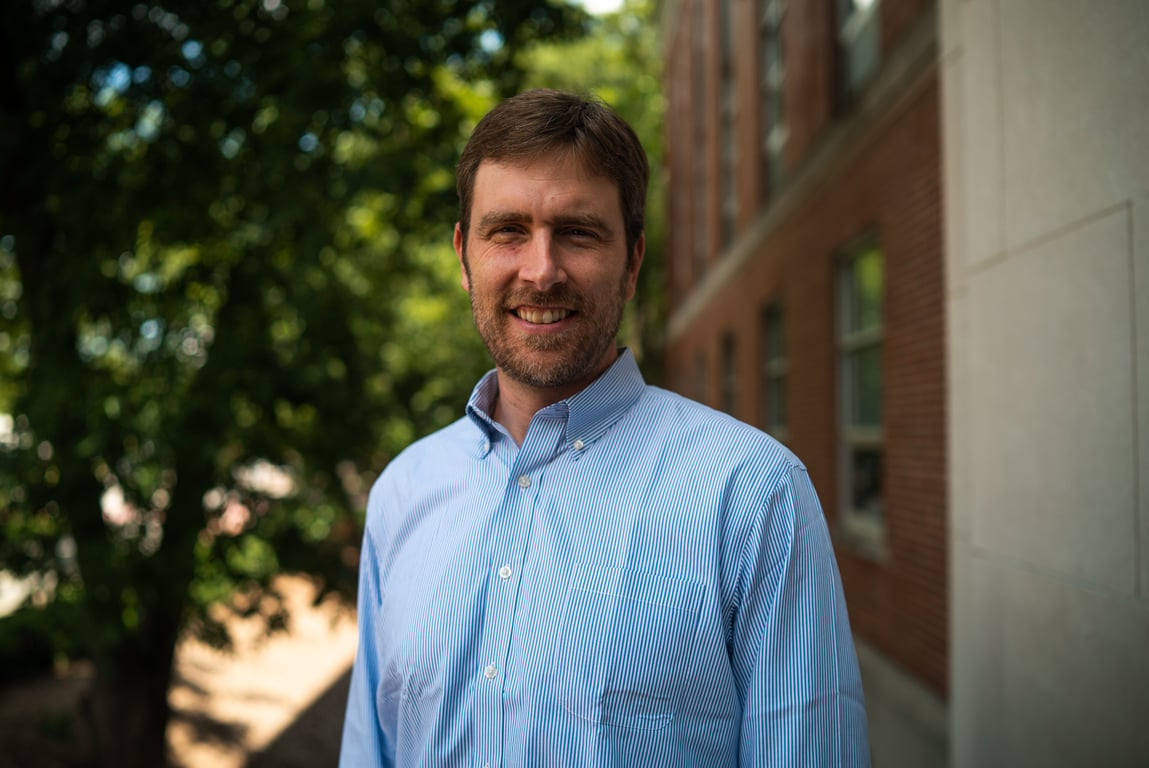
Intended learning outcomes
- Critically assess the relevance of theories for business applications in the domain of financial forecasting, especially in social enterprise organisations
- Develop a specialised knowledge of LEAN methodology
- Develop a critical knowledge of nonprofit operational strategies
- Critically understand the diverse scholarly views on financial forecasting
- Acquire knowledge of select topics for the advanced management of structured problem solving methods within nonprofits
- Employ the standard modern conventions for the presentation of scholarly work and scholarly referencing
- Autonomously gather material and organise it into a coherent research brief and presentation
- Creatively apply concepts of LEAN methodology within the context of nonprofit operations
- Apply an in-depth domain-specific knowledge and understanding to improving the processes and operations of social enterprise organisations
- Solve problems and be prepared to take leadership decisions related to applying LEAN methodology concepts in social enterprise contexts
- Create synthetic contextualised discussions of key issues related to LEAN methodology
- Demonstrate self-direction in research and originality in solutions developed for improving processes in nonprofits
- Apply a professional and scholarly approach to research problems pertaining to iterative learning and root cause analysis
- Efficiently manage interdisciplinary issues that arise in connection to the operations of social enterprise organisations
- Act autonomously in identifying research problems and solutions related to systematic problem solving and organisational troubleshooting
About
Teachers

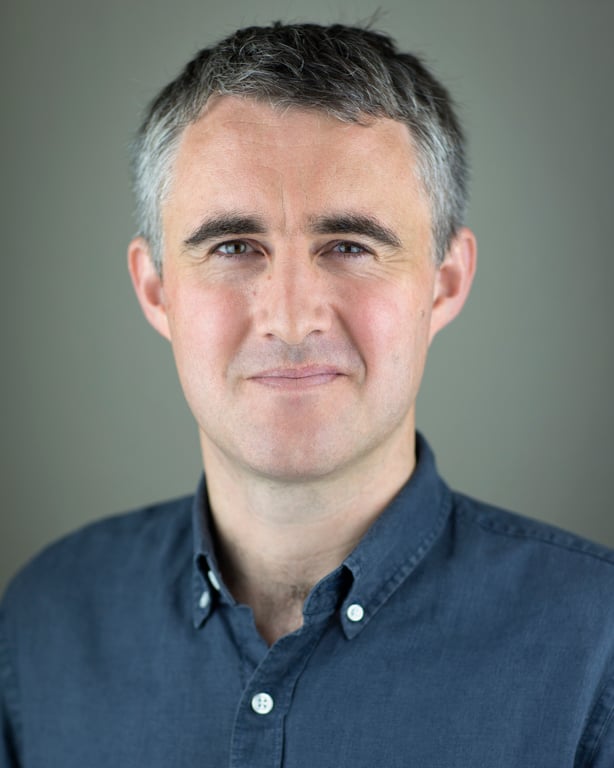

Intended learning outcomes
- Information, auctions, and incentives
- The business cycle
- Production and cost analysis
- Make model markets
- Analyse monetary policy and the supply and demand for money
- Analyse gross domestic product and its components
- Understand how firms manage in competitive and monopolistic environments.
- Understand the determinants of market demand and supply.
- Understand strategic firm behaviour including game theory, entry and deterrence, collusion and cooperation, and bargaining.
About
This module examines how leaders can most effectively use the resources
of their team members to achieve business outcomes. The module
develops managerial and leadership competences, focussing on how key
improvements in the general strategy and techniques of managing people
can produce outcomes more significant than isolated improvements to
employee performance.
The module provides students with concepts to support them across their
careers as they continue to develop effective delegation, management
strategy, and engagement with people inside of an organisation.
Teachers


Intended learning outcomes
- The relevance of theories of management and concepts of delegation and performance tracking.
- Key strategies for effective delegation.
- Critical knowledge of business leadership strategy
- Why improvements in the general strategy and techniques of managing people can produce outcomes more significant than isolated improvements to employee performance.
- Select topics for the advanced management of human resources.
- Autonomously gather material and organise it into a coherent, comprehensive presentation.
- Creatively apply the theories learned in the module to develop critical and original solutions for the challenges of business leadership and strategy including: • Assessing the resources of a team to show how those resources could be used to achieve business outcomes. • Assessing the performance of a team to show whether they are on track to meet business goals.
- Communicate an in-depth domain-specific knowledge and understanding to business leadership and strategy.
- Employ the standard modern conventions for the presentation of scholarly work and scholarly referencing.
- Act autonomously in identifying research problems and solutions related to business leadership and strategy.
- Efficiently manage interdisciplinary issues that arise when assessing human resources and delegating effectively to achieve business goals
- Solve problems and be prepared to take leadership decisions related to business leadership and strategy.
- Create synthetic contextualised discussions of key issues related to leadership and management strategy.
- Apply a professional and scholarly approach to research problems pertaining to the effective use of team resources and delegation of personnel.
- Demonstrate self-direction in research and originality in solutions for management and leadership.
About
Learners form or firm up their own beliefs on the nature, promise, and function of art by reflecting on its crucial importance for contemporary society and its application in local and international development efforts. Learners acquaint themselves with some of the most important discussions on modern aesthetics since Immanuel Kant’s landmark treatise of 1790, The Critique of the Power of Judgement. By carefully analysing the type of pleasure that art produces in individuals who participate in meaningful artistic experiences, this module aims to
introduce the unique possibilities that art-based impact can promise for local and international development. Learners will not only have an opportunity to gain exposure to some of the most important contemporary theories of aesthetics, but also the opportunity to apply them to real-life organisational contexts. The
exercise of translating theory into practice is supported by the Leaders-In-
Residence network; expert practitioners who lead impact-focused arts organisations in different regions of the world.
Teachers


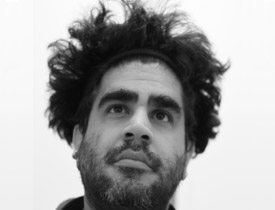

Intended learning outcomes
- Critically understand the diverse scholarly views on aesthetics
- Develop a specialised knowledge of key strategies related to advocating for art in contemporary society
- Develop a critical knowledge of the history and and theory of art
- Critically assess the relevance of theories for business applications in the domain of arts innovation
- Acquire knowledge of select topics for the advanced management of arts and innovation organisations
- Apply an in-depth domain-specific knowledge and understanding to arts advocacy
- Employ the standard modern conventions for the presentation of scholarly work and scholarly referencing
- Creatively apply aesthetic theories to develop critical and original solutions for arts organisations
- Autonomously gather material and organise it into a coherent presentation and research briefing
- Apply a professional and scholarly approach to research problems pertaining to art, innovation, and international development
- Create synthetic contextualised discussions of key issues related to art and its role in society
- Efficiently manage interdisciplinary issues that arise in connection to arts and innovation
- Solve problems and be prepared to take leadership decisions related to the methods and principles of aesthetics and innovation
- Act autonomously in identifying research problems and solutions related to art and civic life
- Demonstrate self-direction in research and originality in solutions developed for arts organisations
About
A distinctive part of the innovation curriculum is Topics in Creative Management, a module that runs in parallel with the curriculum in semesters 1 and 2 of the program. The Topics allow students to integrate course material from new perspectives. Students take Topics in both semesters, and have the ability to select a customised assessment package to make their program more relevant to their educational and career goals. The overall purpose of the Topics is to allow Cohort Members to delve into subjects of interest that complement the core twelve-module curriculum. Invariably, the speaker profile involved in the delivery of Topics content is expert practitioners who share tailored insights and practical guidance. The exact content of the Topics module changes every year in response to changing industry trends. A relevant example that has proven particularly relevant over time for our student demographic is Storytelling for Impact, a course in which two experts, including the author of Circle of Nine Muses: a Storytelling Field Guide for Innovators, delve into the art of finding, crafting, and telling urgent stories for the purpose of enrolling and cultivating key stakeholders within an organisation’s ecosystem. Students take Topics twice, albeit with different content each semester.
Teachers

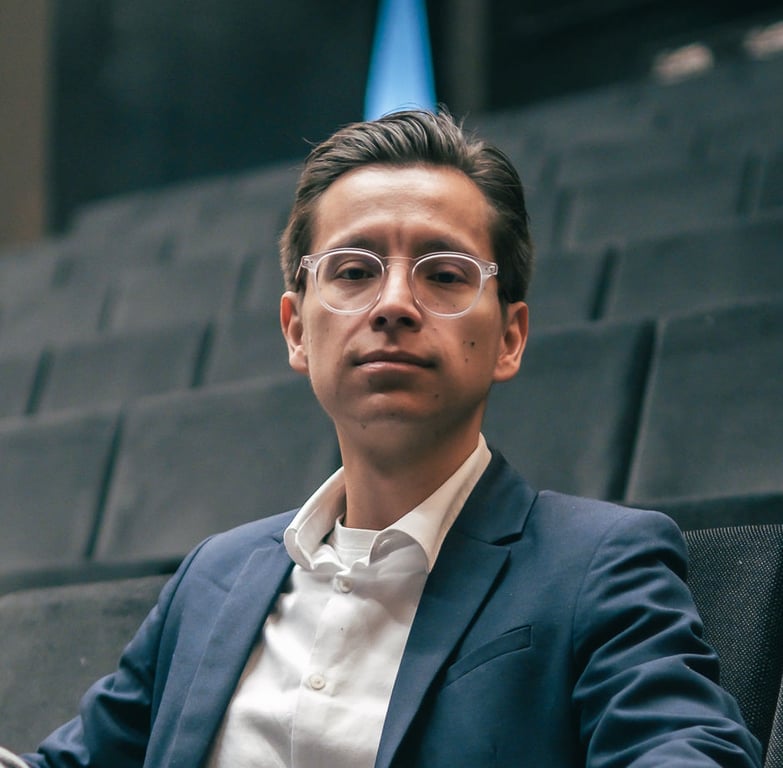
Intended learning outcomes
- Creatively apply concepts drawn from expert practitioners
- Apply an in-depth domain-specific knowledge and understanding to clarify and unify management theories
- Autonomously gather material and organise it into a coherent research brief and presentation
- Critically understand the diverse scholarly views on managing arts innovation
- Develop a critical knowledge of arts innovation leadership strategies
- Acquire knowledge of select topics for the advanced management of stakeholder engagement
- Employ the standard modern conventions for the presentation of scholarly work and scholarly referencing
- Develop a specialised knowledge of the relationship between organisations and their social ecosystems
- Critically assess the relevance of theories storytelling and for business applications in the domain of community music organisations
- Create synthetic contextualised discussions of key issues that integrate all areas of arts innovation management
- Efficiently manage interdisciplinary issues that arise in response to changing professional trends
- Act autonomously in identifying research problems and solutions related to managing nonprofits in a personally sustainable way
- Demonstrate self-direction in research and originality in developing a professional career plan
- Solve problems and be prepared to take leadership decisions related to best practices in social enterprise organisations
- Apply a professional and scholarly approach to research problems pertaining to entrepreneurship and community organisations
About
Teachers



Intended learning outcomes
About
In this module, students will build essential skills to drive creative thinking and innovation within complex business environments. This course equips future leaders with the strategies and tools needed to stimulate and manage creativity in teams, develop novel solutions, and drive organizational change. Students will engage with both theoretical models and practical techniques that support creative processes, preparing them to address real-world challenges with fresh perspectives and inventive solutions.
Throughout the course, students will critically assess methods for designing and leading innovation processes and will explore frameworks for implementing and measuring creativity's impact in the workplace. By the end, they will have developed the capacity to lead dynamic projects, manage creative teams effectively, and nurture a culture of innovation that aligns with strategic business goals.
Teachers



Intended learning outcomes
- Identify key theories and models of creativity and innovation relevant to business settings.
- Explain the role of creativity in strategic business innovation and how it contributes to competitive advantage.
- Analyse the different factors that influence creative processes within teams and organisations.
- Demonstrate effective use of tools and methods for facilitating creativity and innovation within a business team.
- Assess the outcomes of creative initiatives by using relevant metrics to measure their impact on business goals.
- Apply creative problem-solving techniques to real-world business scenarios to generate innovative solutions.
- Design a structured innovation process tailored to the needs of a specific business context, ensuring alignment with strategic objectives.
- Lead collaborative team sessions to foster an environment conducive to creativity and innovation in problem-solving.
- Oversee the integration of creative processes within a project or organisational unit, maintaining focus on outcomes and adaptability.
About
This module focuses on the intersection of Marketing and Fundraising to
broaden Cohort Members' understanding of ‘value’ and ‘sustainable
growth’. Whether working in a large corporation, a start-up, or a young
social enterprise, Cohort Members’ success depends on the perceived
value that a product/service has in the eyes of a target market. This
module introduces marketing tools and fundraising principles that
increase the likelihood of success of any social enterprise attempting to
deliver value to simultaneous stakeholder segments.
Teachers


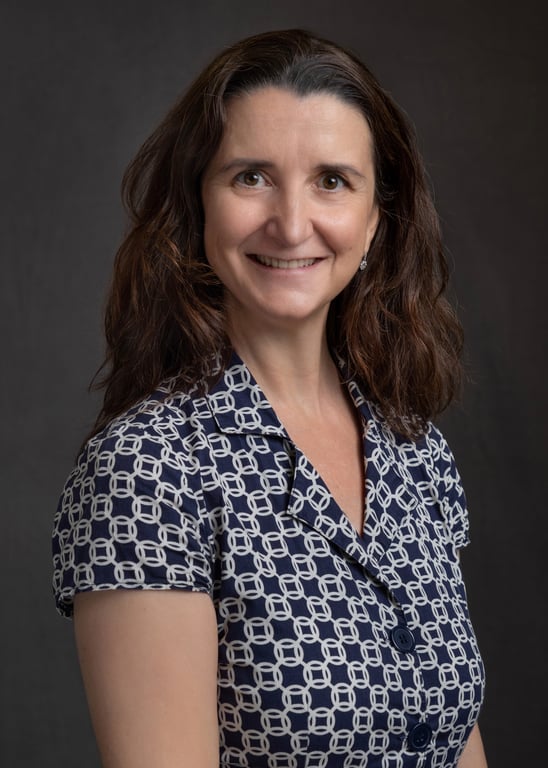

Intended learning outcomes
- Critically assess the relevance of theories for business applications in the domain of analysing a market in order to produce sustainable growth for nonprofits
- Develop a critical knowledge of nonprofit fundraising and marketing strategies
- Acquire knowledge of select topics for the advanced management of multiple stakeholders in a community
- Critically understand the diverse scholarly views on developing stakeholder user personas and user journeys as the basis for marketing and fundraising plans
- Develop a specialised knowledge of market analysis for community arts organisations
- Creatively apply concepts of stakeholder personas and journey mapping within the context of nonprofit marketing and fundraising
- Employ the standard modern conventions for the presentation of scholarly work and scholarly referencing
- Autonomously gather material and organise it into a coherent research brief and presentation
- Apply an in-depth domain-specific knowledge and understanding to sustainable fundraising for music and arts organisations
- Solve problems and be prepared to take leadership decisions related building value and sustainable growth in social enterprise organisations
- Demonstrate self-direction in research and originality in solutions developed for sustainable growth in a nonprofit
- Create synthetic contextualised discussions of key issues related to marketing and fundraising in an arts organisation context
- Efficiently manage interdisciplinary issues that arise when delivering value to multiple stakeholders in a social enterprise
- Act autonomously in identifying research problems and solutions related to identifying and delivering value to different stakeholders in a community
- Apply a professional and scholarly approach to research problems pertaining to market segment analysis
About
Social enterprises contribute significantly to the economic growth and prosperity of communities all over the world. These enterprises – incorporated as for-profit or nonprofit organizations – can provide a mission-driven source of employment for their workforce; produce innovative products/services that meet real needs of beneficiaries, clients, and funders against the backdrop of a community’s social, environmental, and/or cultural challenges; and balance commercial and impact dimensions while creating new value. Introduction to Social Enterprise supports the process of describing, analyzing, and designing business models for social enterprises through the application of a framework developed by Stanford University’s Graduate School of Business, called Impact Business Model Canvas. Through a combination of live classes, reading assignments, formative assessments, and an assignment, Cohort Members learn to utilise the Impact Business Model Canvas and apply it to their assigned organisation from the Leaders-in-Residence network. Digital copies of readings materials are made available for participants at no cost.
Teachers




Intended learning outcomes
- Critically understand the diverse scholarly views on social enterprises
- Develop a specialised knowledge of key strategies related to balancing and advancing stakeholder interests in a social enterprise
- Develop a critical knowledge of the business models for social enterprises
- Critically assess the relevance of theories for business applications in the domain of for- and non-profit social enterprises
- Acquire knowledge of select topics for the advanced management of intended and actual impact of social enterprises on communities
- Autonomously gather material and organise it into a coherent research brief and presentation
- Employ the standard modern conventions for the presentation of scholarly work and scholarly referencing
- Apply an in-depth domain-specific knowledge and understanding to bringing lasting change to arts and innovation organisations
- Creatively apply concepts of business impact models to develop business plans for social enterprises
- Create synthetic contextualised discussions of key issues related to social enterprises and community impact
- Solve problems and be prepared to take leadership decisions related to launching and sustaining social enterprises
- Efficiently manage interdisciplinary issues that arise in connection to developing non-profit resources
- Act autonomously in identifying research problems and solutions related to achieving community impact
- Apply a professional and scholarly approach to research problems pertaining to social enterprises
- Demonstrate self-direction in research and originality in solutions developed for the differentiated value propositions of for- and non-profit social enterprises
About
To ascertain organisational success – and to maximise chances for organisational success – leaders must be able to both understand their program’s context and measure its impact. Fostering data-informed decision-making is increasingly central within the funding landscape as well as for organisational development.
Through a combination of readings, live sessions, interactive experiences, and a final assignment, Module 11 aims to build participants’ capacity to meaningfully integrate evaluation into their work and thereby become better equipped to ensure that their organisations can achieve desired impact.
Teachers




Intended learning outcomes
- Acquire knowledge of select topics for the advanced management of data-informed processes in social enterprise organisations
- Develop a critical knowledge of evidence-based assessment practices—how to gather and evaluate both quantitative and qualitative data
- Critically assess the relevance of theories of assessment for business applications in the domain of music-based social enterprise organisations
- Critically understand the diverse scholarly views on how to ethically implement a data-based assessment protocol
- Develop a specialised knowledge of assessment practices in community-based arts organisations
- Creatively apply concepts of data collection and evaluation
- Employ the standard modern conventions for the presentation of scholarly work and scholarly referencing
- Apply an in-depth domain-specific knowledge and understanding to ethically implement a data-informed assessment program for a community arts organisation
- Autonomously gather material and organise it into a coherent research brief and presentation
- Solve problems and be prepared to take leadership decisions related to building data-informed strategy
- Act autonomously in identifying research problems and solutions related to data-driven assessment of arts programming for community impact
- Apply a professional and scholarly approach to research problems pertaining to data collection and evaluation
- Efficiently manage interdisciplinary issues that arise when balancing quantitative and qualitative evaluation frameworks in a social enterprise context
- Demonstrate self-direction in research and originality in creating data collection and evaluation processes
- Create synthetic contextualised discussions of key issues related to data-driven assessment of the social impact of arts and social enterprise organisations
About
In the Human-Centered Design module, Cohort Members learn how to develop and implement a strategy for social impact. Through a series of workshops, lectures, and guided team meetings, our goal is to help Cohort Members understand the process by which great ideas are turned into impactful solutions.
Teachers


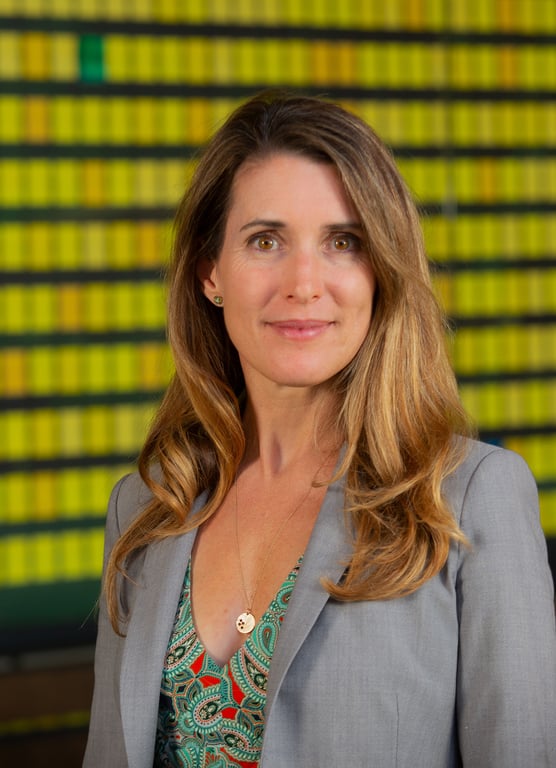
Intended learning outcomes
- Critically understand the diverse scholarly views on the ways user feedback can both drive and thwart innovation
- Develop a specialised knowledge of key strategies related to eliciting user participation and feedback in processes of social change
- Acquire knowledge of select topics for the advanced management of user participation in the context of innovation
- Critically assess the relevance of theories for business applications in the domain of social problems and arts practice
- Develop a critical knowledge of human-centred design and its methodologies
- Employ the standard modern conventions for the presentation of scholarly work and scholarly referencing
- Apply an in-depth domain-specific knowledge and understanding to solving socially impactful problems with human-centred design practices
- Creatively apply concepts of human-centred design and social entrepreneurship to engage new audiences in art participation
- Autonomously gather material and organise it into a coherent research brief and presentation
- Solve problems and be prepared to take leadership decisions related to developing impactful curricula for arts innovation programs
- Create synthetic contextualised discussions of key issues related to social entrepreneurship and human-centred design
- Apply a professional and scholarly approach to research problems pertaining to defining and addressing social issues
- Act autonomously in identifying research problems and solutions related to creating community-centred processes for testing the viability, desirability, and feasibility of plans
- Demonstrate self-direction in research and originality in solutions developed for social problems
- Efficiently manage interdisciplinary issues that arise in connection to developing a theory of change for social problems
About
A distinctive part of the innovation curriculum is Topics in Creative
Management, a module that runs in parallel with the curriculum in
semesters 1 and 2 of the program. The Topics allow students to integrate
course material from new perspectives. Students take Topics in both
semesters, and have the ability to select a customised assessment package
to make their program more relevant to their educational and career
goals. Topics in Creative Management II is not a more “advanced” class
than part 1; it is just a fresh set of topics aligned to the second semester’s
content.
The overall purpose of the Topics is to allow Cohort Members to delve into
subjects of interest that complement the core twelve-module curriculum.
Invariably, the speaker profile involved in the delivery of Topics content is
expert practitioners who share tailored insights and practical guidance.
The exact content of the Topics module changes every year in response to
changing industry trends. A relevant example that has proven particularly
relevant over time for our student demographic is Storytelling for Impact,
a course in which two experts, including the author of Circle of Nine Muses:
a Storytelling Field Guide for Innovators, delve into the art of finding,
crafting, and telling urgent stories for the purpose of enrolling and
cultivating key stakeholders within an organisation’s ecosystem.
Students take Topics twice, albeit with different content each semester
Teachers


Intended learning outcomes
- Critically assess the relevance of theories storytelling and for business applications in the domain of community music organisations
- Acquire knowledge of select topics for the advanced management of stakeholder engagement
- Develop a specialised knowledge of the relationship between organisations and their social ecosystems
- Develop a critical knowledge of arts innovation leadership strategies
- Critically understand the diverse scholarly views on managing arts innovation
- Creatively apply concepts drawn from expert practitioners
- Apply an in-depth domain-specific knowledge and understanding to clarify and unify management theories
- Employ the standard modern conventions for the presentation of scholarly work and scholarly referencing
- Autonomously gather material and organise it into a coherent research brief and presentation
- Create synthetic contextualised discussions of key issues that integrate all areas of arts innovation management
- Demonstrate self-direction in research and originality in developing a professional career plan
- Efficiently manage interdisciplinary issues that arise in response to changing professional trends
- Act autonomously in identifying research problems and solutions related to managing nonprofits in a personally sustainable way
- Apply a professional and scholarly approach to research problems pertaining to entrepreneurship and community organisations
- Solve problems and be prepared to take leadership decisions related to best practices in social enterprise organisations
About
Cultural practices creatively drive core human capacities, including imagination, strategy, playfulness, and collaboration, and as such, embody the modes of action and thinking that are necessary to imagine the world as it otherwise could be.
Making Music Work: Culture & Practice explores the growing area of research concerned with the connection between music and sustainable development. By carefully considering how innovative music initiatives are helping advance specific Sustainable Development Goals (SDGs) from the United Nations’ 2030 Agenda, Making Music Work: Culture & Practice hones in an understanding of how cultural practice can be harnessed to promote local and international development efforts.
In the Making Music Work: Culture and Practice course, Cohort Members will have the opportunity to reflect on their own experience throughout Semester One, learn from the experiences of others, and challenge preconceived ideas regarding the potential of music to impact communities across the world.
Teachers


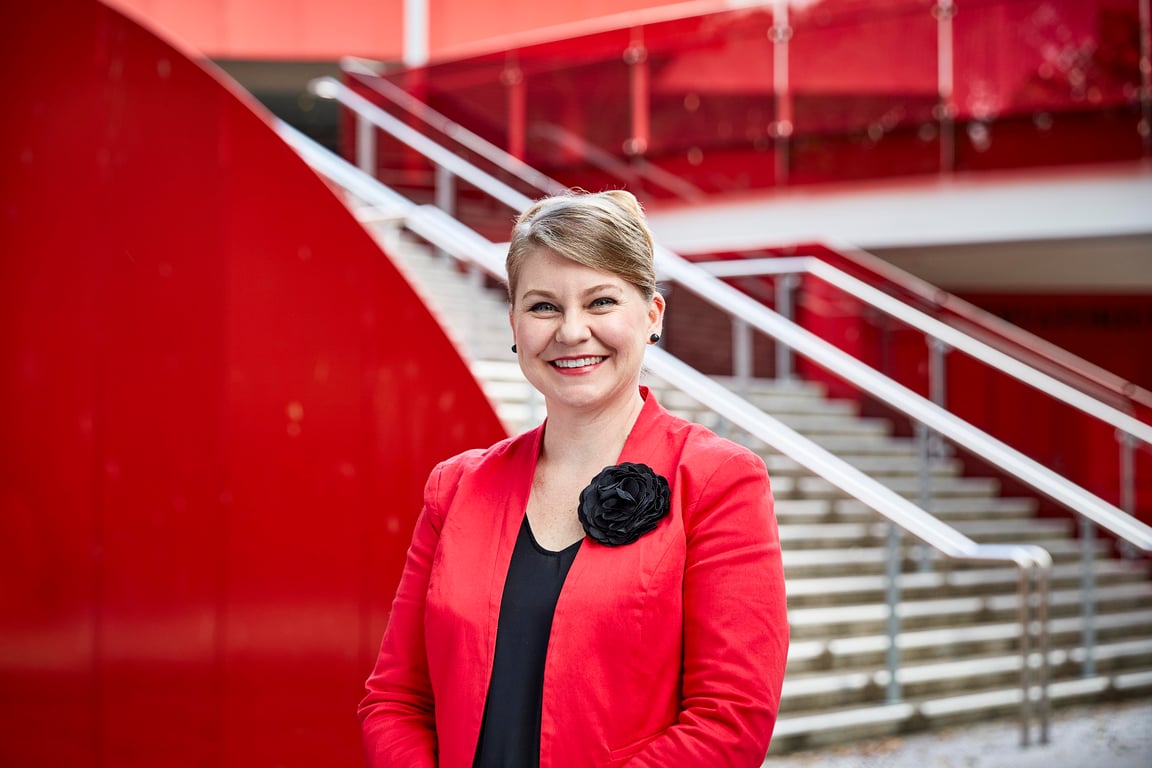

Intended learning outcomes
- Develop a specialised knowledge of key strategies related to evidence-based advocacy
- Acquire knowledge of select topics for the advanced management of communications around scientific evidence for the arts
- Critically understand the diverse scholarly views on the psychology of music
- Critically assess the relevance of theories for business applications in the domain of musical participation
- Develop a critical knowledge of the short- and long-term benefits of musical training and participation
- Creatively apply scientific studies of music to develop critical and original solutions for advocacy for community music organisations and activities
- Autonomously gather material and organise it into a coherent research brief and presentation
- Employ the standard modern conventions for the presentation of scholarly work and scholarly referencing
- Apply an in-depth domain-specific knowledge and understanding to evidence-based advocacy.
- Act autonomously in identifying research problems and solutions related to the benefits of music
- Efficiently manage interdisciplinary issues that arise in connection to arts advocacy based on evidence
- Create synthetic contextualised discussions of key issues related to evidence-based advocacy in the context of music and the arts
- Demonstrate self-direction in research and originality in solutions developed for the psychology of music
- Solve problems and be prepared to take leadership decisions related to the methods and principles of effective arts advocacy
- Apply a professional and scholarly approach to research problems pertaining to the short- and long-term benefits of music education
About
The health of any creative organisation is bound not only to artistic excellence, but also sound financial practices. In this module, we will explore key issues in finance and accounting, as they relate to developing social enterprises in music.
Finance is more than just tracking the flow of money—it is a conceptual framework that allows an organisation to look forward and strategically leverage its resources to advance key projects, priorities, and goals. Accounting, unlike finance, is about looking backward to measure all of the financial activity that has already taken place. This information is critical for financial forecasting—you can’t appropriately budget for the future if you don’t have a clear understanding of how you have allocated your resources in the past. While financial issues are often handled by specialists or consultants, our objective in this module is to help Cohort Members understand foundational concepts to effectively oversee this work within an organisational setting.
Teachers



Intended learning outcomes
- Critically assess the relevance of theories for business applications in the domain of financial forecasting, especially in social enterprise organisations
- Develop a critical knowledge of accounting and finance
- Develop a specialised knowledge of key strategies related to financial modelling
- Acquire knowledge of select topics for the advanced management of nonprofit finances
- Critically understand the diverse scholarly views on financial forecasting
- Create synthetic contextualised discussions of key issues related to social enterprise strategic finance
- Solve problems and be prepared to take leadership decisions related to strategic finance
- Demonstrate self-direction in research and originality in solutions developed for expanding financial resources for nonprofits
- Apply a professional and scholarly approach to research problems pertaining to finance and accounting, especially in the domain of music
- Efficiently manage interdisciplinary issues that arise in connection to financial forecasting for social enterprise organisations
- Act autonomously in identifying research problems and solutions related to accounting and finance for social enterprise organisations
About
Frameworks for Advocacy and Action focuses on the application of Theory of Change for social enterprise design and alignment. Theory of Change is a methodology that helps social enterprise leaders navigate the complexity of value creation against the backdrop of a social, cultural, or environmental problem. In essence, Theory of Change helps Cohort Members think about and describe what they aim to achieve and how they hope to achieve it.
Through a combination of live classes, reading assignments, formative assessments, and a assessment, Cohort Members learn to build a sound logical framework that aids in the design, implementation, and evaluation of a social impact initiative. The content of this course helps Cohort Members organize their thinking, connecting activities and resources to anticipated results, setting performance indicators, allocating responsibilities and resources, and helping communicate information to everyone who needs to support it.
During this course, several industry experts share Theories of Change from their initiatives and review steps taken to build clarity of their vision.
Digital copies of readings materials are made available for participants at no cost.
Teachers





Intended learning outcomes
- Critically understand the diverse scholarly views on organisational design and alignment
- Develop a specialised knowledge of key strategies related to developing logic models informed by a Theory of Change
- Critically assess the relevance of theories for business applications in the domain of organisational change
- Acquire knowledge of select topics for the advanced management of intentional problem framing and designing for outcomes
- Develop a critical knowledge of organisational design and Theories of Change
- Autonomously gather material and organise it into a coherent research brief and presentation
- Creatively apply concepts of organisational design and alignment do develop a Theory of Change
- Apply an in-depth domain-specific knowledge and understanding to bringing lasting change to arts and innovation organisation
- Employ the standard modern conventions for the presentation of scholarly work and scholarly referencing
- Apply a professional and scholarly approach to research problems pertaining to Theory of Change methodologies
- Efficiently manage interdisciplinary issues that arise in connection to intentional problem framing and designing for outcomes
- Demonstrate self-direction in research and originality in solutions developed for social-impact-focused organisational design
- Solve problems and be prepared to take leadership decisions related to building and implementing a Theory of Change
- Create synthetic contextualised discussions of key issues related to organisational design and alignment
- Act autonomously in identifying research problems and solutions related to achieving organisational change
About
Social Entrepreneurship introduces students to the foundational concepts and practices of creating and managing mission-driven ventures that generate both social and economic value. The course provides a focused overview of how entrepreneurial approaches can be applied to address social and environmental challenges such as poverty alleviation, health, energy access, and sustainability.
Through selected case studies, interactive lectures, and guided discussions, students will develop an introductory understanding of socially conscious business models, opportunity identification, and basic resource mobilisation strategies. Emphasis is placed on understanding the balance between social impact and financial sustainability, as well as evaluating different social and organisational models across diverse contexts.
By the end of the course, students will be able to critically reflect on the role of entrepreneurship in addressing societal challenges and apply strategic thinking to assess social ventures at an introductory level.
Teachers


Intended learning outcomes
- Examine how structural, institutional, and ethical factors shape the opportunities and limitations of social entrepreneurship initiatives.
- Explain the core concepts, ethical principles, and social value creation mechanisms underlying social entrepreneurship across for-profit and non-profit contexts.
- Compare and interpret major theoretical perspectives and models of social entrepreneurship, including their relevance within different social and economic environments.
- Communicate well-structured, evidence-informed arguments on social and ethical leadership responsibilities using appropriate academic and professional conventions.
- Analyze selected social entrepreneurship cases using secondary sources to identify key stakeholders, system interactions, and impact outcomes.
- Apply relevant concepts and frameworks to propose focused, system-aware responses to clearly defined social entrepreneurship challenges.
- Formulate context-sensitive managerial insights that balance social impact considerations with organisational sustainability at an introductory strategic level.
- Demonstrate reflective judgement in considering the ethical responsibilities and societal implications of managerial decisions related to social entrepreneurship.
- Integrate interdisciplinary perspectives when assessing social entrepreneurship scenarios within complex organisational or societal contexts.
About
The Reflective Collaboration Labs module invites participants to reflect deeply on their own strengths and potential for growth, both in the context of their individual careers and in collaboration with others. This reflective practice is grounded in an observational practice (a case study of an arts organisation) and a future-oriented one (a capstone challenge that imagines a project). Taken together, the work in this tier accomplishes three discrete goals: it roots the theoretical frameworks of tier one in both an individual context and in team dynamics; it prepares the learner for the work of the Field Leadership Immersion; and it gives the learner powerful management tools for use in their own career.
This tier focuses on multiple aspects of the cross-cultural competence and organizational intelligence needed to lead and manage diverse organizations in the multicultural marketplace. Theories of organizational behavior, social psychology, and anthropology are critically discussed in relation to real-world scenarios. This tier synthesises and provides a focal point for the programmme-long of diversity and provides evidence-based insights and practical strategies
for how to accelerate full inclusion & belonging as a pathway to sustainability and competitive advantage. This tier enables students to successfully build and lead organizations that are diverse, equitable, inclusive, and just. A distinct perspective within this tier is attention to conative skills, a phrase used to describe a person’s instinctive way of doing things or acting in the world, which is distinct from both affective and cognitive skills. The conative dimension of management and productivity are engaged through activities based on the KOLBE® Creative Process. The Reflective Collaboration Labs are comprised of five components:
Case Study
Capstone Challenge
Team Mindset Lab
Change Project
Knowledge Exchange lab
CASE STUDY
The Case Study Assignment is a creative and useful tool that allows Cohort Members to give closure to the learning process of Semester I. Throughout Semester I, Cohort Members work in teams to analyse the local context of an organisation from the Leaders-In-Residence networkwork. At the end of the semester, teams submit a Case Study which chronicles the events that led their assigned organisation to a specific opportunity, and examine a variety of considerations that decision-makers must deal with in reacting to this opportunity. After considering the respective merit, value, and cost of several potential paths for addressing the identified opportunity, Cohort Members prioritise one to propose a series of prospective next steps for the organisation.
CAPSTONE CHALLENGE
The Capstone Challenge entails the research, design, and articulation of a
complete prospectus for a social enterprise. While written and evaluated in an academic context, Capstone Challenges are meant to stand up to real-world scrutiny as market-oriented proposals that pool together all tools and knowledge gathered through Semester II. Capstone Challenges are submitted as proposals that include a clear social value proposition and theory of change, viable business
model that considers both a commercial dimension and an impact dimension, financial plan, operational plan, evaluation plan, organisational structure, and other minor components. The development of Capstone Challenges is assisted by each of the Semester II Modules, as well as by input from module assignments of Semesters I & II. In addition to Faculty feedback, each team is matched with up to two volunteering Capstone Advisors who serve as a reflection-oriented resource for participants in the group.
TEAM MINDSET LAB
The curriculum of the GLP embraces small team collaboration as a fundamental growth mechanism for Cohort Members. Consequently, most assignments in the curriculum, including the Case Study and the Capstone Challenge outlined above, are team-based. These small team, remote, and cross-cultural collaborations create a unique context in which Cohort Members have the opportunity to learn about their own collaboration style, and, through carefully curated activities led by Team Mindset Lab Director based on a conative assessment called KOLBE®, gain self-awareness that helps participants become more effective collaborators
and leaders.
CHANGE PROJECT
While many aspects of the GLP experience are designed to be enhanced through group learning, each Cohort Member lives and works in a unique context and leads an individual life and career journey. For this reason, a range of elements within the GLP curriculum provide the chance for individual customization and tailoring. One component of this individual growth process is each Cohort Member’s Change Project. Most people are held back by their own limiting beliefs – they become trapped in a cycle and become convinced they are unable to accomplish their goals. The Change Project is designed to help Cohort Members identify those beliefs and break limiting patterns to unlock a fuller potential. Through Change Projects, Cohort Members work with an external Professional Expert to identify and act on opportunities for personal growth. Change Projects are confidential and their objective is to help Cohort Members reach their goals faster, become a more effective leader, address limiting beliefs, and gain clarity in their purpose. Each Cohort Member has the opportunity to work with a designated Professional Expert and two assigned Peer Support Partners from their cohort during the GLP experience.
KNOWLEDGE EXCHANGE LAB
Part of the unique value of the MBA in Arts and Innovation is created by harnessing the real-world experiences and cultural viewpoints brought by participants. The knowledge exchange lab is a peer-to-peer forum through which participants become teachers to their peers about areas of unique expertise they possess as a result of their rich professional, cultural, and personal backgrounds.
Virtual Classrooms often struggle to create environments within which all participants feel compelled to become active contributors in the learning of others. From worrying about being socially accepted to relying on the same voices to be the ones interacting with faculty members and guest speakers, there are multiple factors that prevent participants from offering their unique perspectives to the rest of the Cohort. The Knowledge Exchange Lab is a designated space where participants get to share their unique interests, motivations, work experiences, and professional challenges with others – thus increasing the visibility of each participant as an active contributor to the learning.
Teachers



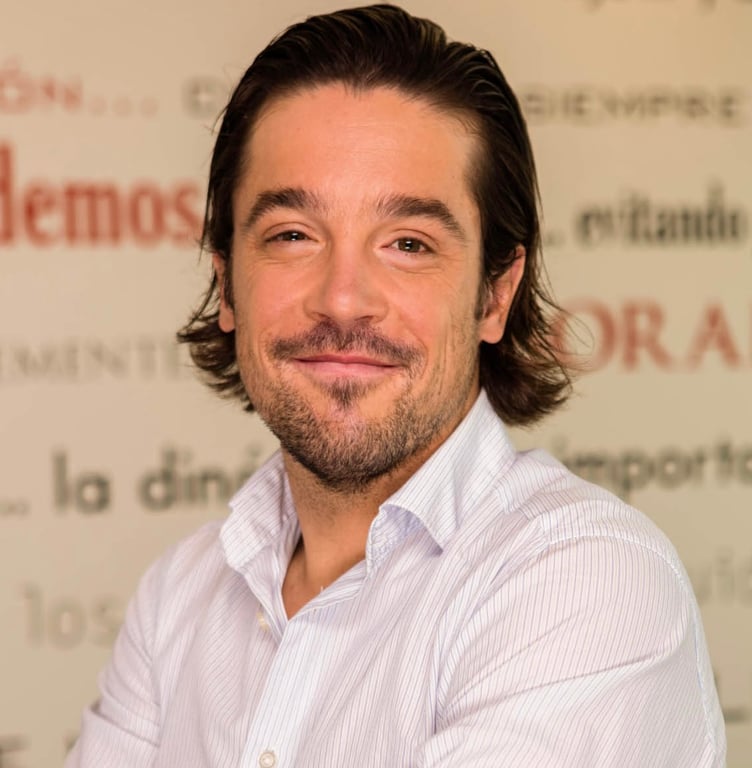

Intended learning outcomes
- Critically understand the diverse scholarly views on cross-cultural communication and nonprofits
- Develop a critical knowledge of managing teams in virtual and in-person environments in an arts nonprofit context
- Acquire knowledge of select topics for the advanced management of workplace culture
- Develop a specialised knowledge of the relationship between collaboration and innovation in an arts context
- Critically assess the relevance of theories of conative dispositions and strengths for managing in an social entrepreneurial organisation
- Creatively apply concepts drawn from peers and coaches to change undesirable aspects of one’s own leadership practices
- Autonomously gather material and organise it into a coherent research brief and presentation
- Apply an in-depth domain-specific knowledge and understanding of cross-cultural communication theories in order to drive arts innovation
- Employ the standard modern conventions for the presentation of scholarly work and scholarly referencing
- Act autonomously in identifying research problems and solutions related to developing conative strengths and opportunities for personal transformation
- Demonstrate self-direction in research and originality in developing a methodology for promoting high-performance workplace culture in a nonprofit
- Efficiently manage interdisciplinary issues that arise in response to inclusive management across different communities and organisations in the context of social enterprise organisations
- Solve problems and be prepared to take leadership decisions related to managing collaboration in cross-functional, community-inclusive teams
- Create synthetic contextualised discussions of key issues pertaining to self-management and collaboration with others
- Apply a professional and scholarly approach to research problems pertaining to change management and virtual teams
About
The Field Leadership Immersion is comprised of four components:
Industry Immersive
Innovation Summit
Creative Ecosystems Policy
Firebird Roadmap
Industry Immersive
This component represents a highly customizable and powerful first-hand experience where Cohort Members apply academic learnings to diverse real-world situations.
The Industry Immersive can take place in-person or digitally, and it acts as a forum for diversifying perspective through immersion in new cultures and professional settings.
The Industry Immersive is an opportunity for Cohort Members to apply classroom learning to a real-world setting of interest to them. Beyond representing a forum to test professional practices of interest and develop social engagement techniques in a new context, the Internship provides the opportunity for in-depth study of a local or international organisation as a reference point of interest.
Despite the many differences among Industry Immersive projects that Cohort Members plan, implement, and reflect on, these share a common development structure, refinement process, execution flow, deliverables, and expectations.
The following steps articulate the Industry Immersive process:
EXPLORATION & DISCOVERY OF FOCAL TOPIC
Interviews with three-four industry professionals they respect
Work Reflection Period on Critical & Missing Skills
Draft and Submit the Topic to Explore Through Industry Immersive
DETERMINING FIT WITH ORGANISATIONAL PROSPECTS
Research Six Organisations (Three Provided by the Instructor; Three Chosen by the Student) to Determine Possible Fit for Industry Immersive
Draft one paragraph explaining why each organisation could be an interesting fit for exploring the identified topic
Read Case Study review from previous Industry Immersive Experiences
Consultations with GLP Industry Immersive Advisor to Arrange Fit
DRAFTING PLANNING PROPOSAL
Deep dive into the selected organisation(s) cultural and operational contexts through the Logic Model and the IBMC: online research + remote interviews
Draft Planning Outline of digital internship activities including a Logic Model and IBMC of the focal organisation(s)
Consultation w/ GLP Fieldwork Advisor on planning
Deliverable Review by Industry Immersive
IMPLEMENTATION
Industry Immersive Identification of Envisioned Deliverable in Conversation with Advisor
Industry Immersive Activities carried out
Industry Immersive Deliverable Update with Internship Advisor
FINAL DELIVERABLE
Reflection + Research of Deliverable + Writing of Deliverable
Deliverable Review by Industry Immersive Advisor
Completing an Internship is a requirement for graduation.
Innovation Summit
By cultivating a unique learning environment dependent on group collaboration and in-person Cohort interaction, the Innovation Summit (IS) is designed as a complement to the personalised experience of the Field Internship and the remote foundational coursework.
The IER is a culturally immersive learning experience where academic learnings and social engagement activities are integrally connected. Led in partnership with Harvard University’s David Rockefeller Center for Latin American Studies (DRCLAS) and hosted by several local organisations, the IER unfolds with additional operational on-site support from GLP Faculty and Administration.
Participation in the in-person IER is highly encouraged but not required. Cohort Members who do not attend in person, must fulfil this requirement by participating in the digital IER, scheduled two weeks after the in-person IER.
Creative Ecosystems Policy
Music is becoming a more active policy tool in how cities plan, govern and invest. From investing in a venue or a festival to developing a cultural quarter, bidding for an arts and culture declaration or supporting policies around integration, equity, diversity and fairness, music is not only part of a city’s cultural policy landscape, it impacts city planning, economic development, tourism, education, climate action, racial justice and wider strategic planning. However, thinking about music in the context of how cities plan, govern and support their residents, businesses and visitors is new. There is no model music policy, nor a universally agreed upon framework to better understand how music impacts cities - be it through supporting their music industry, creating experiences for visitors or bolstering jobs and skills. The aim of this component of the Field Leadership Immersive is to establish this framework by providing a global overview of how cities and communities have invested in, divested from and engaged with music across city planning and governance and how music ecosystem policy is growing into a vocation of its own that requires unique skills and methodologies to succeed.
Through understanding the modern music industry, how music impacts sustainable development, and the unique music ecosystem in which participants live, this component of the Leadership Immersive will provide them with an overview to take the topic forward.
Firebird Roadmap
Following completion of all key elements of the GLP curriculum, Cohort Members apply the sum of the theoretical and skills-based knowledge gathered through the program to write and present individual projects they can feasibly implement in their own contexts to advance their professional lives. This individual assignment can take many different shapes, depending on the curiosities, creativity, and backgrounds of each Cohort Member.
All materials will be provided.
Teachers


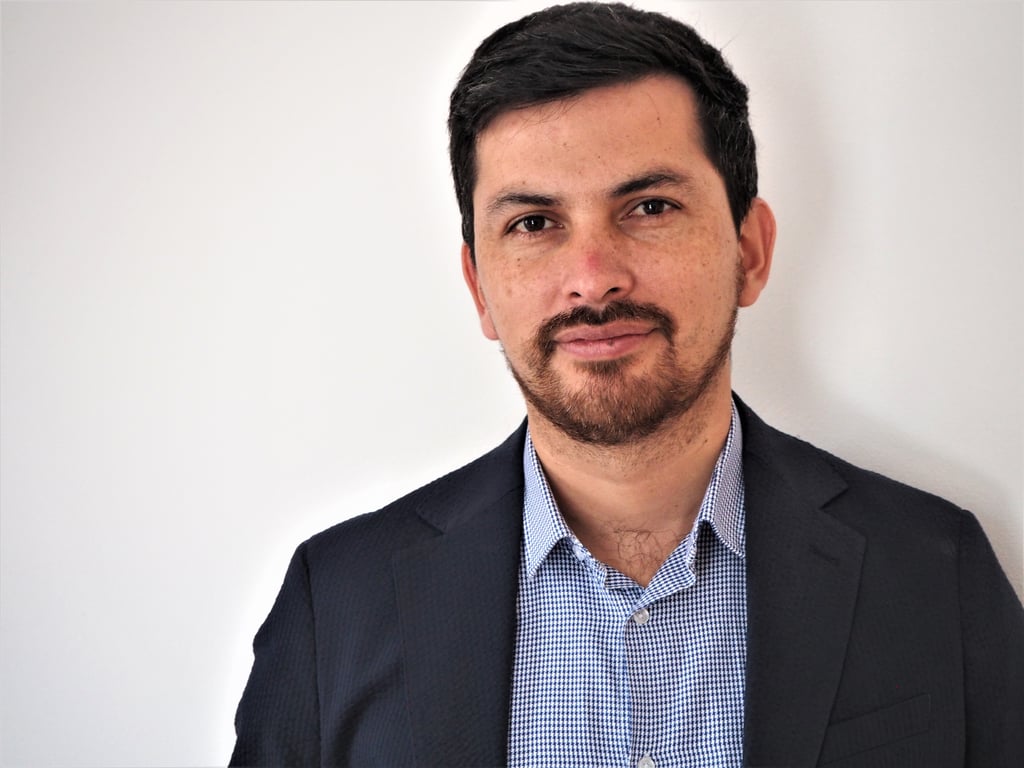
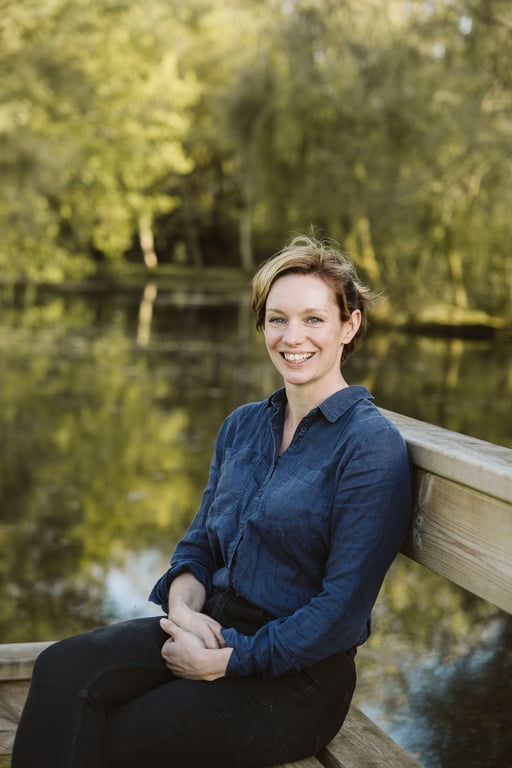

Intended learning outcomes
- Develop a critical knowledge of music policy in global, national, and regional contexts
- Acquire knowledge of select topics for the advanced management of engaging civic and regional leaders in incorporating music into city and place planning
- Critically understand the diverse scholarly views on how music supports sustainable development
- Critically assess the relevance of theories of leadership development for managing complex arts nonprofits
- Develop a specialised knowledge of the relationship between music and governments in the learner’s specific geopolitical context
- Apply an in-depth domain-specific knowledge and understanding of music’s role in place planning to drive an inclusive approach to music policy
- Employ the standard modern conventions for the presentation of scholarly work and scholarly referencing
- Autonomously gather material and organise it into a coherent research brief and presentation
- Creatively apply concepts drawn from course material and interviews with experts to resolve local needs
- Apply a professional and scholarly approach to research problems pertaining to leadership development
- Efficiently manage interdisciplinary issues that arise in response to advocating for music’s role in tourism and sustainable developmen
- Act autonomously in identifying research problems and solutions related to developing innovative arts initiatives
- Create synthetic contextualised discussions of key issues pertain to music policy at local, regional, state, national, and international levels
- Demonstrate self-direction in research and originality in developing a methodology for promoting place-based music ecosystems in response to social needs
- Solve problems and be prepared to take leadership decisions related to arts-based solutions to critical social, economic, and/or environmental challenges
Entry Requirements
Application Process
Submit initial Application
Complete the online application form with your personal information
Documentation Review
Submit required transcripts, certificates, and supporting documents
Assessment
Note: Not required by all colleges.
For colleges that include this step, your application will be evaluated against specific program requirements.
Interview
Note: Not all colleges require an interview.
Some colleges may invite selected candidates for an interview as part of their admissions process.
Decision
Receive an admission decision
Enrollment
Complete registration and prepare to begin your studies
.avif)










